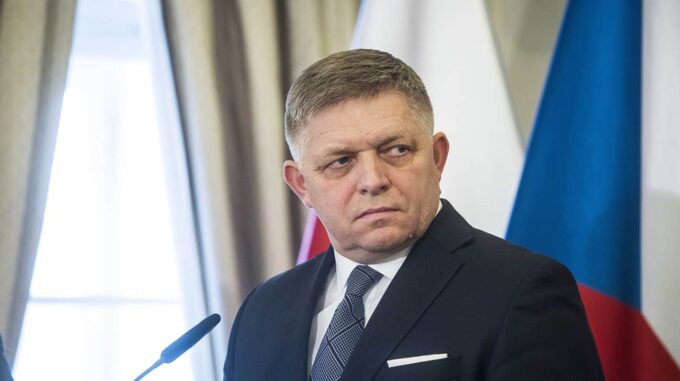Ukraine and the European Union: Slovak Prime Minister Fico Insists on Considering Slovakia’s Interests in Sanctions Issues

Slovak Prime Minister Robert Fico openly expressed his disagreement with the European Union’s hasty steps regarding the introduction of new sanctions against Russia, instead calling for a more in-depth analysis and the consideration of his country’s economic stability. In his latest statement, he emphasized that the main concerns for Bratislava at the moment are energy security and guarantees of stable gas supplies from Russia, and that these issues must be given proper attention before any vote on new restrictions. According to sources from "European Pravda," Fico demanded that Foreign Minister Juraj Blanár initiate changes to the agenda of the EU Foreign Ministers’ meeting scheduled for Wednesday, June 18. He personally requested not to rush with voting on the new sanctions package until the issue of the country's energy security is resolved. The Prime Minister highlighted that his main concern is the potential risk of losses for Slovakia in the event of a complete shutdown of Russian gas, oil, and nuclear fuel supplies as part of the sanctions policy. According to Fico, the Bratislava government wishes to obtain clear guarantees regarding stable gas reserves and the absence of rapid price increases for ordinary citizens. He emphasized that the country has no grounds to "suffer because of Ukraine," hinting that the economic burden of sanctions should not be borne by the Slovak economy and its ordinary residents. This move is a logical continuation of the position of Slovakia’s top leadership after recent statements. Notably, on June 10, the European Commission presented the 18th sanctions package against Russia. However, not all countries expressed unanimous support for the new restrictions. Specifically, Fico publicly stated he would not support these sanctions unless the European Commission proposed concrete mechanisms to resolve the crisis for countries that might find themselves in a very difficult situation due to the suspension of energy supplies. It should be noted that the Slovak Prime Minister is no stranger to demonstrating independence and readiness for tough dialogue with partner institutions in Brussels. His stance raises certain concerns about the unified and coordinated EU policy on sanctions, especially regarding energy security and stability. Overall, the situation with energy supplies in Central Europe remains tense. Partner countries are already feeling the consequences of sanctions and Russia’s isolation policies, and their positions could significantly influence the further development of events. During the upcoming EU Foreign Ministers’ meeting on Wednesday, issues related to sanctions mechanisms and guarantees for member states are expected to become particularly prominent. What the future actions of EU leaders will be and whether they can find a common compromise on this important sphere remains an open question. At the same time, Slovakia’s position demonstrates that even within the framework of a common European policy, some countries insist on protecting their national interests and seek security guarantees amid the global energy crisis.

